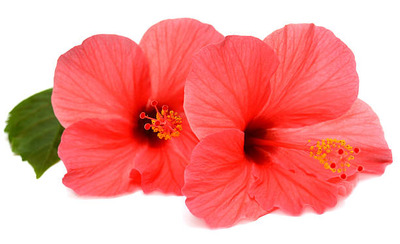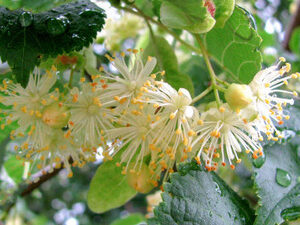
Introduction to Hibiscus Flower Benefits for Hair and Skin
Are you tired of searching for the perfect solution to achieve luscious locks and glowing skin? Look no further! Dive into the vibrant world of hibiscus flower benefits for hair and skin, where nature’s beauty meets unparalleled nourishment. Get ready to explore the secrets of this tropical gem, promising rejuvenation, vitality, and beauty. Embark on an adventure that transforms your beauty routine, leaving you radiant from root to tip.
Brief Description, Origin, and History of Hibiscus Flower
The Hibiscus flower, also known as “roselle” or “China rose,” originates from tropical and subtropical regions worldwide. Hibiscus, from the Malvaceae family, blooms in various colors, each with its own allure.
With a history dating back thousands of years, the hibiscus flower holds significant cultural and medicinal significance in various societies. Ancient civilizations, including the Egyptians and the Chinese, revered the hibiscus for its healing attributes and aesthetic appeal. In Egypt, hibiscus was used in religious ceremonies and symbolized fertility and rejuvenation. In Chinese culture, it was valued for promoting vitality and longevity.
The hibiscus flower holds cultural importance and a culinary legacy, especially in tropical regions like the Caribbean and Southeast Asia. Its tangy taste makes it a favorite in drinks, jams, sauces, and salads.
In addition to its culinary uses, the hibiscus flower has long been prized for its medicinal benefits. Rich in antioxidants, vitamin C, and various minerals, it promotes hair growth, combats skin aging, and nourishes from within.
All About Hibiscus Flower for Health
The hibiscus flower boasts a treasure trove of health benefits, thanks to its rich nutrient profile. Packed with antioxidants, vitamins, and minerals, it offers a myriad of advantages for both the body and mind.
One of the most notable health benefits of hibiscus flower is its potent antioxidant properties. Antioxidants in hibiscus flowers fight oxidative stress and free radicals, lowering the risk of chronic diseases like heart disease, cancer, and diabetes. Hibiscus boasts flavonoids, anthocyanins, and polyphenols, giving it both its vibrant color and health benefits.
Moreover, hibiscus flower is renowned for its cardiovascular benefits. Studies have shown that regular consumption of hibiscus tea may help lower blood pressure and cholesterol levels, thereby reducing the risk of heart disease and stroke. Its ability to improve blood circulation and promote heart health makes it a valuable addition to a heart-healthy diet.
In addition to its cardiovascular benefits, hibiscus flower is also known for its anti-inflammatory properties. Chronic inflammation is linked to a wide range of health issues, including arthritis, autoimmune diseases, and digestive disorders. Hibiscus flower contains compounds that help reduce inflammation and soothe inflammatory conditions, providing relief and comfort to those suffering from chronic pain and discomfort.
Furthermore, hibiscus flower is a natural diuretic, meaning it helps promote urine production and flush out toxins from the body. This detoxifying effect can help improve kidney function, reduce bloating, and alleviate symptoms of water retention and edema.
Overall, the hibiscus flower is a powerhouse of health-promoting compounds, offering a holistic approach to wellness. Hibiscus flower, whether brewed into tea, blended into skincare, or added to recipes, is a versatile ally for health and vitality.
Common Applications of Hibiscus Flower
Hibiscus flower finds its way into various beauty formulations, offering a natural alternative to synthetic ingredients. Incorporating hibiscus-infused products into your skincare and haircare routine can yield remarkable results. Here are some common applications of Hibiscus flower benefits for hair and skin:
- Facial Serums: Hibiscus flower extract is often found in facial serums, where it works to brighten skin tone and improve overall complexion.
- Hair Masks: Hibiscus-infused hair masks nourish and strengthen hair, promoting growth and preventing breakage.
- Body Scrubs: Hibiscus flower powder is a key ingredient in exfoliating body scrubs, helping to slough away dead skin cells and reveal smoother, softer skin.
- Lip Balms: Hibiscus flower oil moisturizes and nourishes lips, providing relief from dryness and chapping.
- Bath Bombs: Adding hibiscus petals to bath bombs creates a luxurious bathing experience, leaving skin feeling refreshed and rejuvenated.
- Face Masks: Hibiscus flower paste is used in face masks to tighten pores, reduce inflammation, and promote a radiant complexion.
- Shampoos and Conditioners: Hibiscus-infused shampoos and conditioners cleanse and hydrate the scalp, leaving hair shiny and manageable.
Tips for Taking Hibiscus Flower Effectively
To maximize the benefits of hibiscus flower for hair and skin, follow these practical tips:
- Consistency is Key: Incorporate hibiscus flower into your beauty routine regularly to see noticeable results.
- Start Slow: If you’re new to using hibiscus flower products, start with a small amount to test for any adverse reactions.
- Customize Your Routine: Experiment with different hibiscus formulations to find what works best for your unique hair and skin needs.
- Stay Hydrated: Drink hibiscus tea regularly to hydrate from the inside out and promote overall skin health.
- Protect Your Skin: Apply sunscreen when using hibiscus-infused skincare products to prevent sun damage and premature aging.
- Listen to Your Body: Pay attention to how your skin and hair respond to hibiscus flower treatments and adjust accordingly.
- Seek Professional Advice: Consult a dermatologist or trichologist if you have any concerns about using hibiscus flower products, especially if you have sensitive skin or scalp conditions.
Characteristics of Good-Quality Hibiscus Flower
When selecting Hibiscus flower benefits for hair and skin, it’s essential to look for certain characteristics that indicate high quality. Here are some key traits to consider:
- Vibrant Color: Opt for hibiscus flowers with rich, vibrant hues, as they are likely fresher and more potent.
- Fresh Aroma: Good-quality hibiscus flowers should have a fresh, floral scent, indicating their purity and freshness.
- Organic Certification: Choose organic hibiscus flower products whenever possible to ensure they are free from pesticides and other harmful chemicals.
- Transparent Sourcing: Look for brands that are transparent about their sourcing practices and can trace the origin of their hibiscus flowers.
- Minimal Processing: Select products that undergo minimal processing to preserve the natural nutrients and benefits of the hibiscus flower.
- Positive Reviews: Read customer reviews and testimonials to gauge the effectiveness and quality of hibiscus flower products before making a purchase.
- Ethical Harvesting: Support brands that prioritize ethical harvesting practices and sustainable sourcing methods to protect the environment and local communities.
Interesting Facts About Hibiscus Flower Essential Oil
Hibiscus flower essential oil is a prized ingredient in aromatherapy and skincare products, valued for its therapeutic properties and enchanting aroma. Here are some fascinating facts about hibiscus flower essential oil:
- Antioxidant Powerhouse: Hibiscus flower essential oil is rich in antioxidants, which help neutralize free radicals and protect the skin from oxidative stress and premature aging.
- Anti-Inflammatory Properties: The anti-inflammatory compounds in hibiscus flower essential oil help soothe irritation, reduce redness, and calm inflamed skin conditions such as eczema and psoriasis.
- Aromatherapy Benefits: Inhaling the sweet, floral scent of hibiscus flower essential oil can help uplift the mood, reduce stress and anxiety, and promote relaxation and mental clarity.
- Natural Perfume: Hibiscus flower essential oil adds a delightful floral fragrance to perfumes, candles, and skincare products, imparting a sense of luxury and elegance.
- Hair Care Hero: When applied to the scalp, hibiscus flower essential oil stimulates hair growth, strengthens follicles, and nourishes the hair shaft, promoting healthy, lustrous locks.
- Antibacterial Action: Hibiscus flower essential oil exhibits antibacterial properties, making it effective in treating acne, blemishes, and other skin infections.
- Versatile Ingredient: Hibiscus flower essential oil enhances various beauty and wellness products with its therapeutic benefits and captivating scent.
Practical Tips for Integrating Hibiscus Flower into Your Life
Incorporating hibiscus flower into your daily routine is easier than you might think. Whether you prefer to sip on a refreshing cup of hibiscus tea or pamper your skin with hibiscus-infused skincare products, there are numerous ways to harness the beauty and benefits of this floral wonder. Here are some practical tips for integrating hibiscus flower into your life:
- Start Your Day with Hibiscus Tea: Brew a pot of hibiscus tea to kickstart your morning routine. Not only does hibiscus tea provide a refreshing start to your day, but it also offers a host of health benefits, including antioxidant support and hydration.
- Enhance Your Skincare Routine: Look for skincare products that contain hibiscus extract or oil, such as facial cleansers, serums, and moisturizers. Adding hibiscus to your skincare routine is an excellent choice, given its hydrating, exfoliating, and skin-brightening properties.
- Experiment with DIY Hair Treatments: Treat your hair to a luxurious hibiscus hair mask to nourish, strengthen, and revitalize your locks. Mix hibiscus powder or dried petals with coconut oil, yogurt, or honey to create a hydrating and conditioning hair treatment.
- Get Creative in the Kitchen: Experiment with hibiscus-infused recipes by adding dried hibiscus petals to homemade jams, sauces, and desserts. You can also use hibiscus tea as a base for refreshing beverages, sorbets, and cocktails for a tropical-inspired treat.
- Elevate Your Bath Routine: Add hibiscus petals to your bath for a luxurious and indulgent experience. The soothing aroma and skin-nourishing properties of hibiscus will help relax your body and mind, leaving you feeling refreshed and rejuvenated.
- Customize Your Beauty Rituals: Tailor your beauty rituals to incorporate hibiscus flower in ways that suit your preferences and lifestyle. Whether it’s a weekly face mask or a daily hair treatment, find what works best for you and enjoy the benefits of hibiscus flower.
- Educate Yourself: Take the time to learn more about the benefits and uses of hibiscus flower. Explore different formulations, read reviews, and seek advice from experts to make informed decisions about incorporating hibiscus into your beauty and wellness routine.
By incorporating hibiscus flower into various aspects of your life, you can experience firsthand the multitude of benefits this versatile flower has to offer. Whether you’re seeking to enhance your health, beauty, or overall well-being, hibiscus flower is sure to delight your senses and uplift your spirits.
Conclusion
Unlock the secret to radiant hair and glowing skin with the power of hibiscus flower. From its ancient roots to its modern-day applications, this botanical marvel continues to captivate beauty enthusiasts worldwide. Embrace nature’s bounty and elevate your beauty routine with hibiscus flower-infused products today!
FAQs
- Why is hibiscus flower beneficial for hair?
- Hibiscus flower is beneficial for hair because it contains vitamins, minerals, and antioxidants that nourish the scalp, strengthen hair follicles, and promote healthy hair growth.
- Can hibiscus flower help with skin conditions like acne?
- Yes, hibiscus flower can help with skin conditions like acne. Its antibacterial and anti-inflammatory properties help to cleanse pores, reduce inflammation, and prevent breakouts.
- How often should I use hibiscus flower on my hair or skin?
- You can use hibiscus flower on your hair or skin as often as needed. For hair treatments, once or twice a week is generally recommended, while for skincare, daily use or as part of your regular routine can be beneficial.
- Can pregnant women use hibiscus flower products?
- Pregnant women should exercise caution when using hibiscus flower products, especially internally. While hibiscus tea is generally considered safe in moderation, it’s advisable to consult with a healthcare professional before incorporating it into your routine.
- Are there any side effects of using hibiscus flower?
- While hibiscus flower is generally safe for most people, some individuals may experience allergic reactions or skin sensitivities. It’s essential to perform a patch test before using hibiscus-infused products and discontinue use if any adverse reactions occur.

